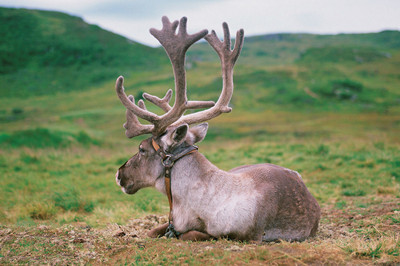(单词翻译:单击)
听力文本
Wilderness protected areas get eight billion visitors a year.
And that's just on land.
Underwater reserves add millions more to the tally.
Which, considering these are "protected" areas, seems like an insane number of people.
"It is insane."Dan Blumstein, a behavioral and conservation biologist at U.C.L.A. "
Now remember some of these might be local parks.
But a lot of people are going and seeking out natural areas annually around the world.And therefore the potential impact of this can be quite large."
And the potential impact, to put it bluntly:"you know, does ecotourism make animals dumb?"
Or, in other words: could our presence disrupt and change the instincts of wild animals, and ultimately, affect their survival?
Blumstein and his colleagues surveyed literature on human-wildlife interactions all over the world,from chimpanzee ecotourism in Uganda, to elk and antelope gawking in the Grand Tetons.
And they concluded that human tourism—no matter how well intentioned—might desensitize animals.
Making them easier prey for poachers and predators.
A couple of mechanisms could be in play.
There's what's called the "human shield" effect—predators are less likely to pounce when humans are around, making prey less vigilant, even after we leave.
Or we might simply habituate prey to large noisy animals—like us—and thus render them more susceptible to predators later.
"It does seem that we may be, inadvertently or advertently, domesticating animals through tourism and wildlife tourism and ecotourism."
The review is in the journal Trends in Ecology & Evolution.
Now this paper isn't direct proof that tourism is actually desensitizing animals—it's just a theory at this point.
"What we have is we have all the pieces of the puzzle sort of lining up, and we articulate a pathway by which this could be an issue.
Is it, and under what conditions?
We don't know, and our paper really is a rallying cry for more research on the topic."
Research that will hopefully give land managers the tools they need to convince us humans not to love the world's wildlife to death.
参考译文
野地保护区每年会吸引800万名游客。
而这仅仅只是在陆地上。
水下保护区则会使这一数字再加上数百万。
由于这些“受保护区域”,因此很多人都会愿意前往。
“这太疯狂了。”加州大学洛杉矶分校的行为生物保护学家丹·布朗斯特恩说道。
“现在记住这些区域的其中一些可能是当地公园。
但每年有很多人会动身前往寻找世界各地的自然区域。
因此造成非常严重的潜在影响。”
而讲到这样的潜在影响,坦率一点:“是生态旅游让动物们成了哑巴吗?”
或者换言之,是我们的介入打扰并改变了野生动物们的习性并最终影响到它们的存活?
从乌干达的黑猩猩生态旅游再到大提顿公园的麋鹿和羚羊,布朗斯特恩和他的同事们对世界范围内人类同野生动进行接触的文献进行了研究。

而后他们得出结论无论人类的出发角度是多么的善意,都会使得动物们不再变得敏感。
这使得偷猎者及捕食者更易得手。
而其中一些机制也起到了一定作用。
其中有一种名为人盾效应,即当人类出现在附近时,捕食者不会去对猎物发动突然袭击,这就使得猎物放松警惕,即使人类远离后也是如此。
或许我们只是习惯了发出嘈杂声响的大型动物,而这会让它们更容易受到捕食者的影响。
通过旅游、野生动物旅游以及生态旅游我们可能似乎在故意或无意间将这些动物驯化。
这项研究已在《生物学与进化趋势杂志》上发表。
现在该项研究并不能直接证明生态旅游能够直接将动物驯化—在某种程度上仅是理论性的。
“我们现在已经整理了大量此类问题,而且估测这可能是同样的研究课题。
是这样吗?还是需要某种条件才能触发?
我们并不知晓,而实际上我们的研究需要更多相关研究才能证明。”
希望一些研究会让土地管理员相信,人类并不希望世界上的野生动物们灭亡。
译文为可可英语翻译,未经授权请勿转载!
重点讲解
1.no matter 不管
例句:Nowadays the bride almost always wears white, no matter how many times she has been down the aisle.
现今当新娘的差不多总是身披洁白的婚纱,不管她已经当过多少次新娘。
2.need to 需要
例句:When you have two adversaries negotiating, you need to be on neutral territory.
让敌对双方坐下来谈判时,你得保持中立。
3.add to 添加到
例句:The new film won't add to your credit.
这部新影片将不会增加你的声誉。
4.prey for 猎物
例句:The lion will often stalk its prey for hours.
狮子经常悄然跟踪猎物达几个小时。


